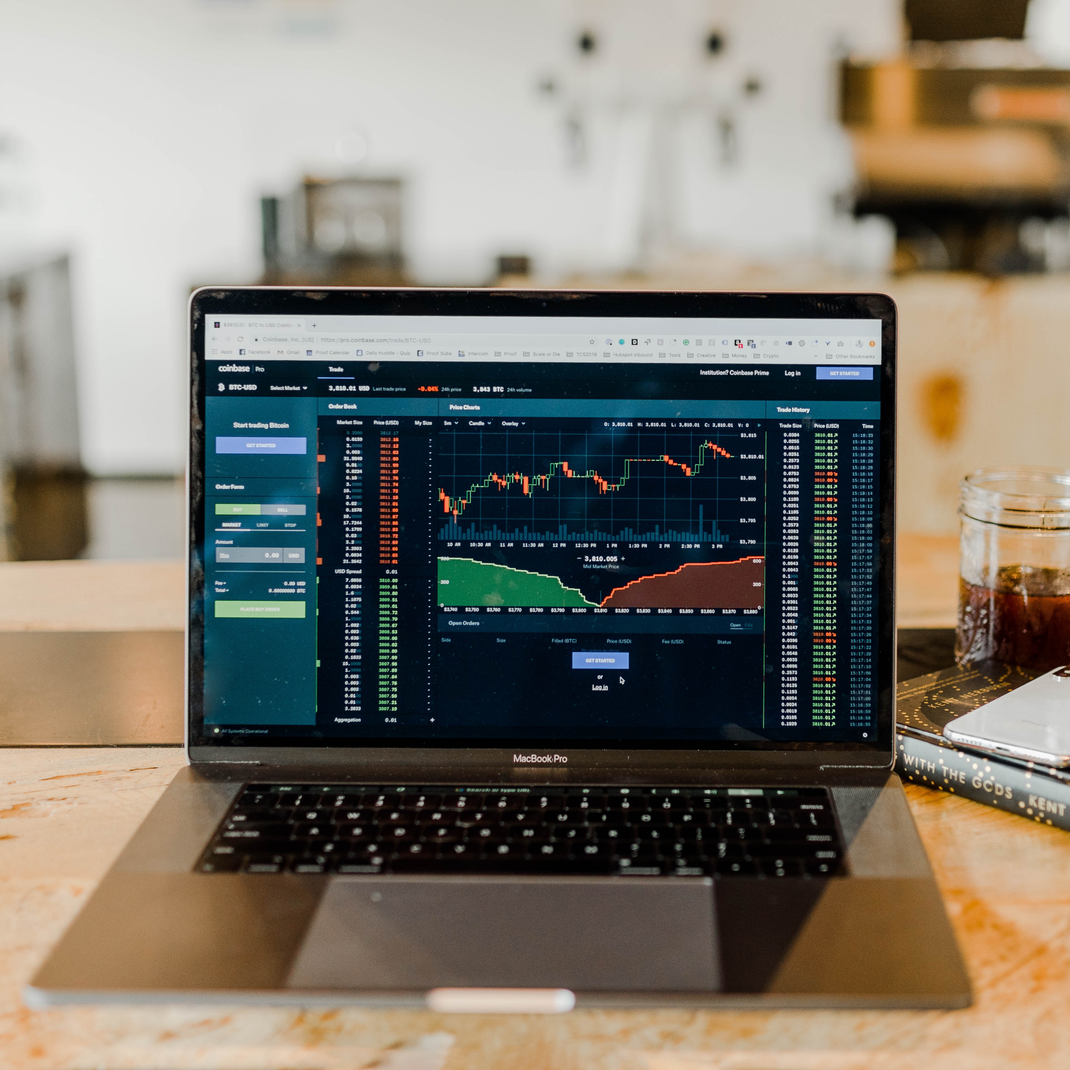How Does Investing Work?

You may have heard that investing is the best way to grow your money and reach your biggest financial goals. But what is investing, exactly? How does investing work? And how can you get started? Find the answers to those and other investing questions below.
What is investing?
At its simplest, investing is when you purchase assets you expect to earn a profit from in the future. That could refer to buying a home (or other property) you believe will rise in value, though it commonly refers to buying stocks and bonds.
How is investing different than saving?
Saving and investing both involve setting aside money for future use, but there are a lot of differences, too. Check out this chart:
Investing |
Saving |
|
Always involves risk. Even the safest investments involve some risk that could cause you to lose money. |
Rarely involves risk. If your cash sits in an FDIC-insured savings account (which protects up to $250,000), you typically don’t need to worry about losing any. |
|
Higher potential for growth. Depending on how much risk you’ll accept, it’s possible to earn a large return on your investments. With stocks, for example, the long-term average is nearly 10 percent per year. |
Lower potential for growth. Virtually all savings accounts will pay you interest for keeping money in your account. But it probably won’t be much and often fails to keep up with inflation (the rate at which prices are rising). |
|
Usually best for mid- or long-term goals. Generally, it’s best to only invest money you won’t need for a little while, as the stock market fluctuates and you don’t want to be forced to sell stocks that are down because you need the money. |
Good for short-term goals. A savings account, being essentially risk-free, is ideal for immediate purchases as well as any money that you can’t afford to lose in the short term (such as an emergency fund). |
|
May be difficult to access quickly. Before you can spend any of the money you’ve built up through investments, you’ll have to sell them. With stocks, it could take days before the proceeds are settled in your bank account, and selling property can take months (or longer). |
Readily accessible. Generally speaking, you can access money in your savings account anytime. |
What’s the difference between investing and trading?
While many people use “investing” and “trading” interchangeably, there’s one key difference to keep in mind.
Investors purchase stocks, bonds and other asset classes with far-away goals and profits in mind, typically over the course of years or decades. This allows investors to take advantage of long-term market trends. Despite short-term price fluctuations, the stock market has increased significantly in value over the long term.
Traders, on the other hand, buy and sell stocks with short-term profits in mind, aiming to capitalize on daily swings in stock prices. In other words, a trader might buy shares in a company and then sell them quickly—within the same week, day or even hour.
5 Steps to Start Investing in the Stock Market Now
Ready to start investing in the stock market? Here are five steps that can help you set yourself up for success.
1. Name your goal(s).
Before investing your first dollar, it’s important to know why you’re investing. Your goals inform everything from how long you should invest to which account you should open and what types of investments to purchase. Some popular investing goals include: retiring comfortably, buying a home, sending kids to college, paying for a wedding, starting a business.
You don’t have to pick just one. You can—and probably should—invest for multiple goals at once, though your approach may need to be different. (More on that below.)
2. Nail down your timeline.
Next, determine how much time you have to reach your goals. This is called your investment timeline, and it dictates how much risk (and therefore the types of investments) you may be able to take on.
For example, stock prices fluctuate a lot in the short term—thanks to a range of factors, from tariffs to interest rate hikes to political developments and more—but it has historically trended up over time. So for relatively near-term goals, like a wedding you want to pay for in the next couple of years, you may want to stick with a more conservative investing strategy. For longer-term goals, however, like retirement, which may still be decades away, you can assume more risk because you’ve got time to recover any losses.
3. Figure out your own risk tolerance.
While your investment timeline will play a big role in determining how much risk is appropriate, your personal appetite for risk counts, too. If the thought of losing any money keeps you up at night—or you think you’d be tempted to panic-sell when the market drops—you may be better off sticking with a more conservative portfolio, even if you’re investing for the long term.
4. Pick the right account.
Here are some common investment account options, based on your goal:
-
If you’re investing for retirement and you have access to an employer-sponsored account, like a 401(k), 403(b), 457 or Thrift Savings Plan, you’ll likely want to contribute to that account first—at least until you capture any employer match. (That’s free money!) These accounts typically allow pre-tax contributions, which can potentially shave money off your tax bill today. Since these funds are meant for retirement, withdrawing from them before age 59½ typically means you’ll pay income tax and penalties.
-
If you’re investing for retirement and don’t have an employer-sponsored account (or you’ve already maxed it out), consider an Individual Retirement Account (IRA). These also offer tax benefits, but may offer lower contribution limits than workplace plans. Like other retirement accounts, withdrawing before retirement age will generally trigger an early tax bill and penalties.
-
If you’re investing for education costs, you may want to open a 529 account, which allows for tax-free withdrawals on eligible education-related expenses, like tuition and room and board.
-
If you’re investing for other goals, your best bet is a regular brokerage account. There are no contribution limits or withdrawal rules to keep in mind, but you will pay taxes on any profits generated.
5. Select a diverse group of investments.
You’re almost there. Now it’s time to decide which investments should make up your portfolio and align with the goals, timeline and risk tolerance you’ve decided on.
On the super conservative end, there are Certificates of Deposit (CDs) and Money Market Accounts (MMAs), which offer higher yields than typical savings accounts in exchange for either a guarantee that you’ll keep your money there for a set period of time (CDs—say one, two or five years) or a high minimum deposit (MMA). Bonds—which are essentially loans you give to a company or the government—are also on the safer side because there’s an explicit expectation that you’ll get paid back with interest in a certain timeframe.
Then there are stocks, which represent a riskier, but potentially more rewarding investment. By purchasing a company’s stock, you become a partial owner of that business. When the company’s doing well, so is your money; the opposite is true, too. Fortunately, there’s something you can do to mitigate that downside.
Enter diversification, or the process of varying your investments to manage risk. There are two main ways to diversify your portfolio:
Diversifying between asset classes, like stocks and bonds.
Generally, as you get older (and closer to retirement) or are otherwise nearing the end of your investing timeline, experts recommend shifting your asset allocation toward owning more bonds.
Diversifying within asset classes:
Even within asset classes, you’re likely to find a range of different categories that you can invest in, such as foreign and domestic stocks and government and corporate bonds. These also come with different risk profiles, so it’s generally a good idea to have some variety here as well.
A simple and low-cost way to achieve this is by investing in stock funds, like exchange-traded funds (ETFs). Funds can own hundreds of individual stocks at once, so big losses for one company can be offset by others’ gains—and you’re less likely to see sharp dips in the value of your investments.
More Tips for Success
Now that you’ve gone the basics down, keep these good investing habits in mind:
Start as soon as you can.
Time is your greatest ally when it comes to investing. Thanks to compounding—or when the returns on your money generate their own returns, and so on—the longer your money is in the market, the longer it has to grow. Try our compound interest calculator to see for yourself!
Invest often.
By investing even small amounts regularly over time, you’re practicing a habit that will help you build wealth throughout your life called dollar-cost averaging. This allows you to buy more shares when prices are low and fewer when they’re high.
Make it automatic.
Automating any recurring task makes it easier to stick with over the long term. The same holds true for investing. Whether it’s by automatically contributing a portion of your paycheck to a 401(k) or setting up automatic transfers from your checking account to a brokerage account, automating your investments can make it a lot easier to hit your long-term goals.
Reinvest your dividends.
Many public companies offer quarterly or annual dividends to investors as a way of sharing their profits. Reinvesting that money can have a big impact on how much your portfolio grows over time.
Stay the course.
Trying to predict how the market is going to perform from day to day—also known as timing the market—rarely works. More often, it encourages us to sell investments when prices are lower than we paid to begin with, which is exactly what you don’t want to do when investing. As long as your goals remain the same, stick with your investing strategy for the long term. Remember: Every U.S. market downturn in history has ended in an upturn.
This material has been presented for informational and educational purposes only. The views expressed in the articles above are generalized and may not be appropriate for all investors. The information contained in this article should not be construed as, and may not be used in connection with, an offer to sell, or a solicitation of an offer to buy or hold, an interest in any security or investment product. There is no guarantee that past performance will recur or result in a positive outcome. Carefully consider your financial situation, including investment objective, time horizon, risk tolerance, and fees prior to making any investment decisions. No level of diversification or asset allocation can ensure profits or guarantee against losses. Article contributors are not affiliated with Acorns Advisers, LLC. and do not provide investment advice to Acorns’ clients. Acorns is not engaged in rendering tax, legal or accounting advice. Please consult a qualified professional for this type of service.









